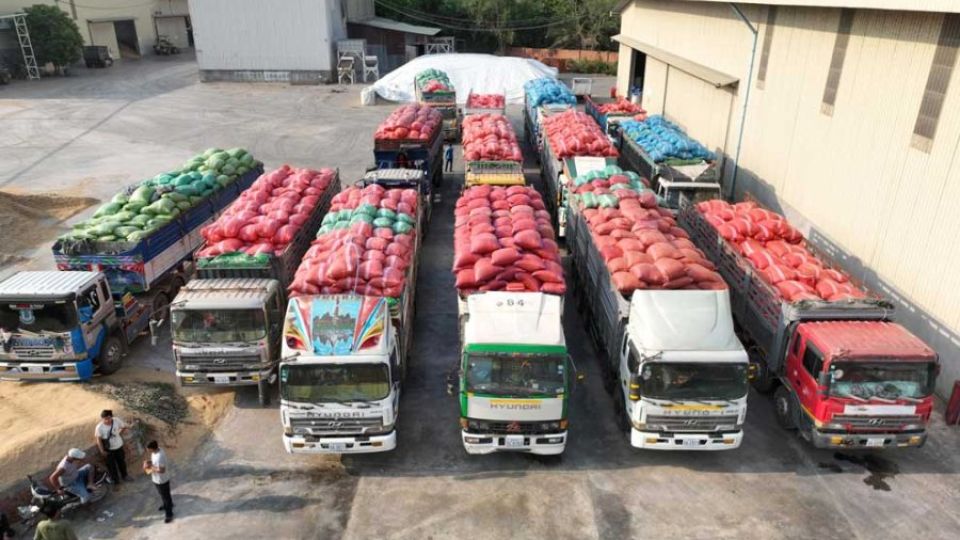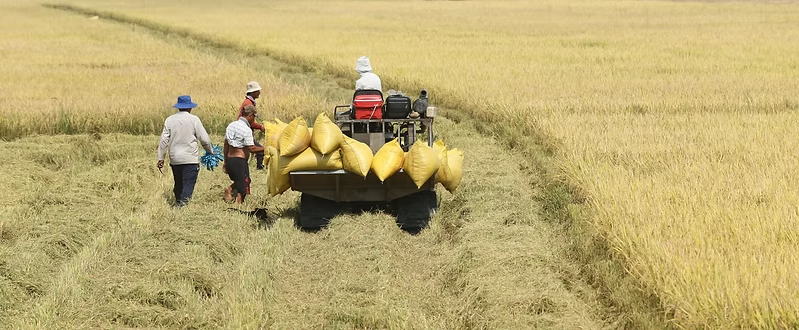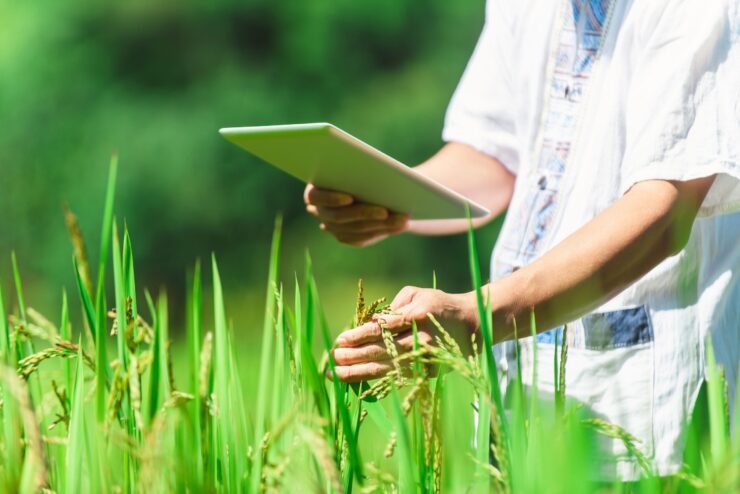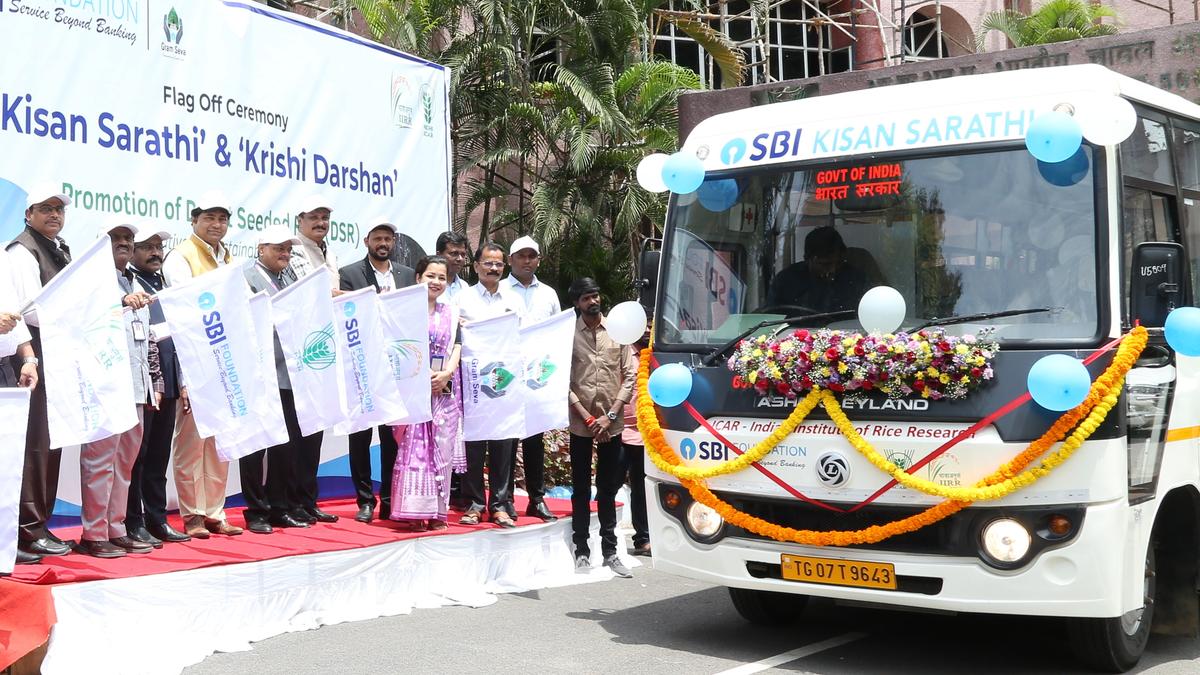Tags
Cambodia becoming key global rice exporter
As a key food producer, Cambodia has established a long-term vision to enhance its contribution to global food security.

Rice collected by traders is loaded on trucks and awaiting transport to rice mills earlier this month. PHOTO: FACEBOOK/ THE PHNOM PENH POST
PHNOM PENH – Cambodia has become a key exporter in the global food security landscape, exporting upwards of 650,000 tonnes of milled rice over 2.7 million tonnes of unmilled rice to more than 50 destinations in 2023.
As a key food producer, the Kingdom has established a long-term vision to enhance its contribution to global food security.
This goal includes ensuring sustainable production and trade amidst challenges such as climate change, the demand for low carbon emissions, the need to protect agricultural ecosystems, shifts in healthy food consumption patterns and disruptions in production caused by wars and global crises.
In preparation for this, the country is developing strategies to expand and diversify its rice market from 2024-30, aiming to boost exports of Cambodian milled rice to international markets, which are increasingly competitive and offer greater benefits.
The initiative will also leverage existing production systems and opportunities to enhance exports.
Ministries conduct nat’l rice workshop
On March 12, the Ministry of Commerce, the Ministry of Agriculture, Forestry and Fisheries and the UN Food and Agriculture Organisation (FAO) in Cambodia conducted a national workshop to establish the strategy.
The plan, currently being drafted, focuses on expanding high-value product markets by diversifying the right crops to meet the needs of importing countries and align with consumer trends.
The gathering saw participation from 120 individuals, including representatives from relevant ministries, institutions, local administrations, mill owners, traders, producers, development partners (DPs), and educational and research institutions.
“Milled rice is considered one of Cambodia’s most precious assets. Therefore, sustainable development in this sector is crucial for the food security of 17 million people and for ensuring the livelihoods of farmers in rural areas,” states a press release on the workshop.
“Profits from milled rice production can aid in enhancing family diets, settling debts and covering expenses. The increase in milled rice exports has significantly boosted the labour market for rural workers, increased income in various currencies and created other by-products,” it adds.
Commerce minister Cham Nimul highlights that the new strategy would serve as a crucial tool for the government, particularly the commerce ministry, to diversify markets and enhance milled rice exports through market-based production and global market systems.
She emphasises that the approach aims to maximise milled rice exports from Cambodia to competitive international markets, leveraging current production systems and opportunities.
The minister urges all stakeholders to engage in thorough discussions on protecting trademarks and intellectual property (IP).
Nimul stresses the importance of developing collective trademarks and enhancing the quality of Cambodian milled rice, considering aspects such as quantity, quality, safety and the attractiveness of packaging.
Agriculture ministry secretary of state Yang Saing Koma says the country farms between 11 and 12 million hectares of rice annually.
He notes that the Kingdom produced approximately 12 million tonnes in 2023, with seven million for domestic consumption and five million for export. Around 700,000 tonnes were milled rice, primarily comprising Phka Rumduol jasmine rice and Sen Kra’op fragrant rice, which together constitute over 80% of the exports.
“Therefore, we see that Cambodia’s potential lies in focusing on exporting [these two types of rice],” he says.
However, he notes significant challenges in exporting these varieties to international markets, including issues with genetically pure rice strains, risks from agricultural pesticides, quality concerns at harvest and difficulties in implementing agricultural contracts with farming communities.
“To be frank, in 2023, most of the contracts, though signed, were not implemented. When rice was harvested, it was sold elsewhere,” he adds.
Enhancing the rice sector
The FAO is assisting the commerce ministry in enhancing Cambodia’s trademark, food management and food safety systems, as well as in developing the strategy.
FAO representative in Cambodia Rebekah Bell states that supporting the development of the value chain is a priority to ensure sustainable livelihoods and poverty reduction, contributing to inclusive economic growth, as outlined in the first phase of the government’s Pentagonal Strategy.
“This is a crucial time for Cambodia to reflect on what has been achieved and to capitalise on 14 years of rice price chain development knowledge. This will enable us to create opportunities to plan for maximum benefit in a new global system while managing the uncertainties of global trade,” she adds.
She notes that as the country transitions out of its status as a least developed country (LDC) in the coming years, it is important to analyse the impact of taxes and market access.
She says that identifying opportunities and creating clear action plans to capitalise on tax opportunities will also be essential for improvement.
The Development of Master Plan for Crop Production 2030 aims to increase productivity to meet market demand and enhance exports by advancing agricultural modernisation. The targets set for the rice production chain include increasing production to over 13 million tonnes and boosting exports to more than 1 million.
To achieve these targets, the agriculture ministry has outlined three strategies: to promote rice production; to improve harvesting techniques and post-harvest processes; and to enhance the quality, safety and agribusiness of the commodity.
As a way forward, it will focus on promoting the cultivation and use of high-quality rice strains and strengthening systems for genetically pure rice varieties in markets through agricultural contracts.
The effort includes deploying agricultural officials to 250 farming communes to promote the implementation of techniques aimed at reducing production costs and increasing profits.
The ministry aims to encourage the use of domestic rice varieties, promote and connect farming communities with large local rice mills and strengthen the management systems for the industry, to be achieved through the registration of producers and traders of different varieties of rice.
https://asianews.network/cambodia-becoming-key-global-rice-exporter/Published Date: March 27, 2024






